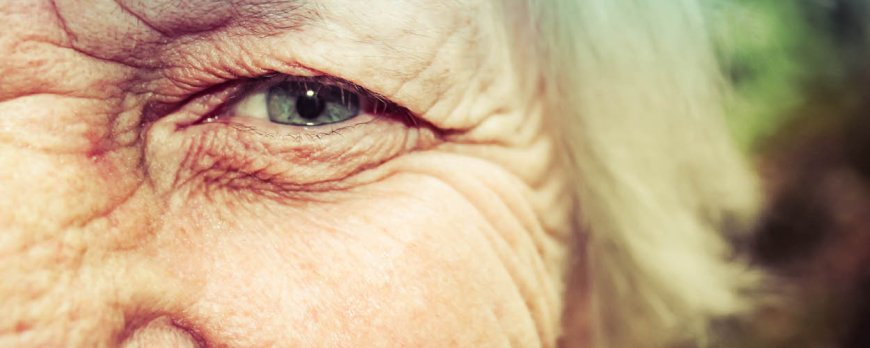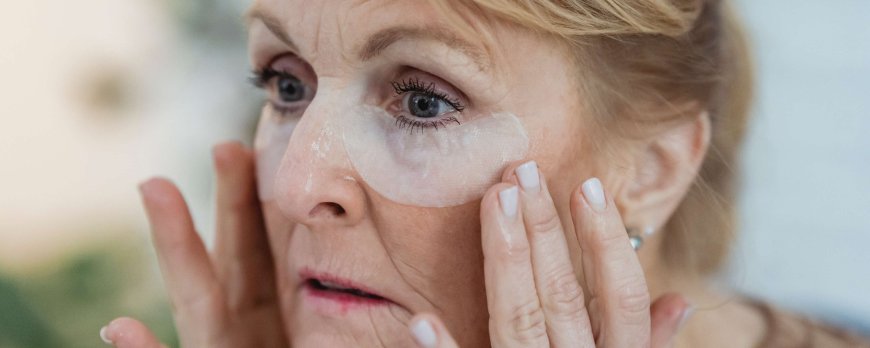Are we aging slower?
Explore the fascinating science behind the question: Are we aging slower? Discover insights on longevity and modern advancements in aging research.

Are We Aging Slower?
Aging is a natural and inevitable part of life, but recent scientific research has raised the question: Are we aging slower than before? Understanding the aging process and its impact on our overall wellbeing is essential as we strive to age gracefully.
Key Takeaways:
- Recent research suggests that the rate of biological aging varies among individuals, starting in young adulthood.
- By the age of 45, those with a faster pace of biological aging may exhibit signs of aging, such as decreased physical function and cognitive decline.
- The increase in average life expectancy is primarily due to improved survival rates among children and young adults, not a change in the rate of aging.
- There is no evidence to suggest that the rate of aging has been slowed or delayed in the modern era.
- While the possibility of significantly slowing aging is still uncertain, maintaining a healthy lifestyle and considering genetic factors may influence the rate of aging to some extent.
Understanding the Aging Process
As we age, our bodies undergo a series of changes known as the aging process, which can lead to various age-related changes in our physical and cognitive abilities. Recent research suggests that people vary in how fast they age, and this divergence begins in young adulthood. By the age of 45, individuals with a faster pace of biological aging are more likely to exhibit signs of aging, such as decreased physical function and cognitive decline.
The aging process is a natural part of life and doesn't suddenly begin at a certain age. It is a lifelong journey that involves gradual changes in our bodies. However, despite the desire to slow down the aging process and age gracefully, there is currently no evidence to suggest that the rate of aging has been slowed or delayed in the modern era.
Studies have shown that the increase in average life expectancy is primarily due to improved survival rates among children and young adults, rather than a change in the rate of aging. In fact, research examining populations of monkeys and humans has indicated that differences in mortality can be attributed to premature deaths rather than changes in the rate of aging.
While it remains uncertain if aging can be significantly slowed, there are factors that may influence the rate of aging to some extent. Adopting a healthy lifestyle, including regular exercise, balanced nutrition, and stress management, is believed to have a positive impact on overall wellbeing and may potentially slow down the aging process. Additionally, genetic factors play a role in how we age, but more research is needed to fully understand their influence. By taking care of our physical and mental health, we can aim to age gracefully and maintain a good quality of life throughout the aging process.

Factors Influencing Aging
While aging is a complex process, certain factors such as maintaining a healthy lifestyle and genetic predisposition may play a role in influencing the rate at which we age.
A healthy lifestyle, including regular exercise, a balanced diet, and adequate sleep, has been shown to have a positive impact on aging. Engaging in physical activity helps to maintain muscle mass and strength, improves cardiovascular health, and enhances overall wellbeing. Additionally, consuming a nutrient-rich diet that includes a variety of fruits, vegetables, whole grains, and lean proteins provides essential vitamins and minerals that support healthy aging.
Genetic factors also contribute to the rate of aging. Research has indicated that certain genes may influence how fast or slow individuals age. These genetic variations can affect various aspects of aging, including the skin's appearance, the function of organs and tissues, and susceptibility to age-related diseases. However, it is important to note that genetic factors are not the sole determinant of aging, and lifestyle choices can still greatly impact the aging process.
While it is still unclear if aging can be significantly slowed, adopting a healthy lifestyle and understanding genetic predispositions can potentially influence the rate at which we age. By making informed choices, individuals can strive to age gracefully and improve overall wellbeing as they navigate through the lifelong process of aging.
Signs of Aging
As the aging process progresses, individuals may experience age-related changes that can manifest as decreased physical function and cognitive decline, affecting their overall wellbeing. These changes are a natural part of the aging process and can vary from person to person. Here are some common signs of aging that individuals may encounter:
- Decreased Physical Function: Aging can lead to a decline in physical abilities, such as reduced strength, flexibility, and endurance. Tasks that were once effortless may become more challenging, impacting daily activities and independence.
- Cognitive Decline: Memory lapses, difficulty concentrating, and slower processing speed are common cognitive changes associated with aging. While mild cognitive decline is considered a normal part of aging, severe impairment may be a sign of a more serious condition.
- Changes in Appearance: Wrinkles, age spots, and graying hair are visible signs of aging. Skin may also become drier and less elastic, resulting in a more aged appearance.
- Changes in Sleep Patterns: As individuals age, they may experience changes in their sleep patterns, including difficulty falling asleep, staying asleep, or experiencing restful sleep. This can lead to daytime fatigue and a decreased overall sense of wellbeing.
It's important to note that while these changes can be disconcerting, they are a normal part of the aging process. Additionally, the rate at which they occur can vary among individuals. Some people may experience these signs of aging earlier or more prominently than others.
While there is currently no evidence to suggest that the rate of aging has been slowed or delayed, research has shown that certain lifestyle factors and genetic factors may influence the rate at which we age. Maintaining a healthy lifestyle, which includes regular exercise, a nutritious diet, and stress management, can help promote overall wellbeing and potentially slow down certain age-related changes. Additionally, genetic factors play a role in determining the rate of aging, with some individuals inheriting genes that support longevity and healthy aging.
In conclusion, understanding the signs of aging can help individuals navigate the natural changes that come with getting older. While the aging process is inevitable, maintaining a healthy lifestyle and being aware of these changes can contribute to overall wellbeing and potentially influence the rate at which we age.
Longevity and Modern Advancements
With modern advancements in aging research, scientists are uncovering new insights into longevity and discovering potential strategies to improve the quality of life as we age. Recent research suggests that people vary in how fast they age, and this divergence begins as early as young adulthood. By the age of 45, individuals with a faster pace of biological aging may experience signs of aging, such as decreased physical function and cognitive decline.
This indicates that aging is a lifelong process that doesn't suddenly begin at a certain age. However, there is currently no evidence to suggest that the rate of aging has been slowed or delayed in the modern era. The increase in average life expectancy is primarily attributed to improved survival rates among children and young adults, rather than a change in the rate of aging.
Furthermore, a study comparing populations of monkeys and humans found that differences in mortality can be primarily attributed to premature deaths rather than changes in the rate of aging. While it remains uncertain if aging can be significantly slowed, measures such as adopting a healthy lifestyle and understanding the influence of genetic factors may play a role in influencing the rate of aging to some extent.

The Lifelong Process of Aging
Contrary to popular belief, aging is not a sudden occurrence that starts at a certain age but rather a lifelong process that begins in younger adulthood and evolves with time. Recent research suggests that people vary in how fast they age, and the divergence starts in young adulthood. By the age of 45, those with a faster pace of biological aging are more likely to exhibit signs of aging, such as decreased physical function and cognitive decline.
This indicates that aging is a complex and ongoing process that affects our overall wellbeing. It is important to recognize that the choices we make and the habits we form during younger adulthood can have a significant impact on our rate of aging as we grow older.
While there is no evidence to suggest that the rate of aging has been slowed or delayed in the modern era, there are factors that may influence the rate of aging to some extent. Genetic factors play a role, but maintaining a healthy lifestyle is key. Regular exercise, a balanced diet, stress management, and quality sleep all contribute to overall wellbeing and can potentially impact the rate at which we age.
It is still unknown if aging can be significantly slowed, but understanding that it is a lifelong process empowers us to make informed choices that prioritize our wellbeing throughout our lives. Taking care of our physical and mental health, engaging in activities that bring us joy, and cultivating strong social connections are all essential components of aging well and embracing the journey of getting older.
Exploring the Rate of Aging
The rate at which individuals age can vary, influenced by a combination of factors such as lifestyle choices and genetic predisposition, but whether aging can be significantly slowed is still a topic of ongoing scientific inquiry.
Recent research suggests that people begin to show signs of aging at different rates, with some individuals experiencing a faster pace of biological aging compared to others. This divergence in aging starts as early as young adulthood and becomes more pronounced by the age of 45.
It is important to note that aging is a lifelong process that doesn't suddenly begin at a certain age. However, there is currently no evidence to suggest that the rate of aging has been slowed or delayed in the modern era. The increase in average life expectancy primarily stems from improved survival rates among children and young adults, rather than a change in the rate of aging in older individuals.
A study comparing populations of monkeys and humans further supports the notion that differences in mortality can be attributed to premature deaths rather than changes in the rate of aging. This suggests that while certain factors, such as a healthy lifestyle and genetic predisposition, may influence the rate of aging to some extent, it remains unclear whether aging can be significantly slowed.
Key Points:
- The rate at which individuals age varies due to lifestyle choices and genetic factors.
- Aging is a lifelong process that begins in young adulthood.
- The increase in average life expectancy is primarily due to improved survival among younger individuals.
- Research indicates that premature deaths rather than changes in the rate of aging contribute to differences in mortality.
- While measures such as a healthy lifestyle and genetics may influence the rate of aging, whether aging can be significantly slowed is still unknown.
The Increase in Life Expectancy
While average life expectancy has increased over the years, it is important to note that this increase is largely attributed to improvements in survival rates among children and young adults, rather than a significant change in the rate of aging. Recent research suggests that people vary in how fast they age, and the divergence starts in young adulthood. By the age of 45, those with a faster pace of biological aging are more likely to exhibit signs of aging, such as decreased physical function and cognitive decline. This indicates that aging is a lifelong process and doesn't suddenly begin at a certain age.
However, there is no evidence to suggest that the rate of aging has been slowed or delayed in the modern era. The increase in average life expectancy is primarily due to improved survival among children and young adults, rather than a change in the rate of aging. In fact, a study examining populations of monkeys and humans found that differences in mortality could be attributed to premature deaths rather than changes in the rate of aging.
While it is still unknown if aging can be significantly slowed, measures such as a healthy lifestyle and genetic factors may influence the rate of aging to some extent. It is important to prioritize overall wellbeing and take steps to maintain a healthy lifestyle to ensure a better quality of life as we age.
Insights from Research Studies
Research studies examining populations of both monkeys and humans have shed light on the concept of aging, suggesting that differences in mortality can primarily be attributed to premature deaths rather than changes in the rate of aging.
Recent research suggests that individuals age at different rates, with some experiencing a faster pace of biological aging than others. This divergence starts in young adulthood and becomes more apparent by the age of 45, as those with a faster pace of aging are more likely to exhibit signs of aging, such as decreased physical function and cognitive decline.
These findings emphasize that aging is a lifelong process that doesn't suddenly begin at a certain age. However, it's important to note that there is currently no evidence to suggest that the rate of aging has been slowed or delayed in the modern era.
While the increase in average life expectancy is often associated with a slower rate of aging among older adults, it is primarily due to improved survival rates among children and young adults. One study comparing populations of monkeys and humans found that differences in mortality could be attributed to premature deaths rather than changes in the rate of aging.
While it remains unknown whether aging can be significantly slowed, research suggests that measures such as maintaining a healthy lifestyle and genetic factors may influence the rate of aging to some extent. Further studies are needed to fully understand the complexities of the aging process and its implications for our wellbeing.
Conclusion
Aging is a natural and lifelong process that affects individuals differently, with factors such as genetics and lifestyle choices influencing the rate at which we age. While the rate of aging has not been shown to be significantly slowed, adopting a healthy lifestyle can contribute to overall wellbeing and potentially promote a slower aging process.
Recent research suggests that people vary in how fast they age, and the divergence starts in young adulthood. By the age of 45, those with a faster pace of biological aging are more likely to exhibit signs of aging, such as decreased physical function and cognitive decline. This indicates that aging is a lifelong process and doesn't suddenly begin at a certain age.
However, there is no evidence to suggest that the rate of aging has been slowed or delayed in the modern era. The increase in average life expectancy is primarily due to improved survival among children and young adults, rather than a change in the rate of aging. Furthermore, a study examining populations of monkeys and humans found that differences in mortality could be attributed to premature deaths rather than changes in the rate of aging.
While it is still unknown if aging can be significantly slowed, measures such as a healthy lifestyle and genetic factors may influence the rate of aging to some extent. Taking care of our physical and mental health, engaging in regular exercise, maintaining a balanced diet, and managing stress can all contribute to overall wellbeing and potentially mitigate the effects of aging.
FAQ
Are we aging slower?
Recent research suggests that people vary in how fast they age, but there is no evidence to suggest that the rate of aging has been slowed or delayed in the modern era.
What is the aging process?
The aging process is a natural and gradual series of changes that occur in our bodies as we get older, impacting our physical and cognitive functioning.
What factors influence the rate of aging?
Factors such as maintaining a healthy lifestyle and genetic factors may influence the rate at which we age. However, it is still unknown if aging can be significantly slowed.
What are the signs of aging?
Signs of aging can include decreased physical function and cognitive decline, which can impact overall wellbeing.
How do modern advancements affect longevity?
Modern advancements in aging research have contributed to increased average life expectancy by improving survival rates among children and young adults.
Is aging a lifelong process?
Yes, aging is a lifelong process that starts in younger adulthood and continues throughout our lives. Maintaining overall wellbeing is important at every stage.
Can the rate of aging be significantly slowed?
It is still unknown if the rate of aging can be significantly slowed. Factors such as lifestyle choices and genetic factors may play a role in the rate of aging.
Why has average life expectancy increased?
The increase in average life expectancy is primarily due to improved survival rates among children and young adults, rather than a slower rate of aging among older adults.
What insights do research studies provide?
Research studies have provided insights into mortality differences and the aging process, highlighting the natural and lifelong nature of aging.


































































































































